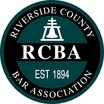 You may have stumbled across this article because you have no idea where to turn to find the best lawyer for your case. It seems that every attorney's website proclaims that THEY'RE the firm with the best track record and best results. Did you expect their website to say anything else? I've written before on strategies to choose your lawyer, which is a little different than starting the process to initially vet your lawyer... after all, before you talk to your potential attorney how do you research them to make sure they're even worth your time? In this article we've listed, in no particular order of importance, the top ways to thoroughly research your lawyer before you pick up the phone, and more importantly their relevance to your decision making process. It's important that you not put too much weight on any one website over another, but look for reliable, consistent and credible information. Martindale-Hubbell - This is the oldest directory and peer review rating system in the U.S. Most lawyers know about it, but most people looking for an attorney for the first time have never heard of it. Although many lawyers now consider Martindale-Hubbell out dated and "passé", it still has arguably one of the best methods for attorneys to rate other attorneys (also referred to as "peer reviews"): Highest - "AV Preeminent", Middle - "Distinguished", Lowest - "Notable". (Here's their methodology). It's important to note that most attorneys are not rated at all, so technically a non-rated attorney could potentially be a much better lawyer than even the highest rated attorneys. A lawyer must request or be nominated to participate, and some simply don't like the outcome. To add a bit to the confusion, some incredible attorneys choose to opt out of the process altogether. This could easily be the topic of a entirely separate blog. Yelp - This one is a bit obvious to some, but not to others. Most people think of Yelp to find a great restaurant, but not necessarily an awesome lawyer. If you look through the reviews you can get a good sense of how an attorney interacts with their clients. Most people who've hired an attorney and had a bad experience have no problem tossing their attorney-client privilege by publicly complaining about it. However, take these with a grain of salt. When a case involves someone's freedom, family or money people can become vindictive if the result is less than perfect - even when their lawyer did everything possible to get them an excellent result. Not to mention that anyone can write a Yelp review, and the person writing the review might have been the defendant in a case pursued by the plaintiff's attorney they're rating - just to be spiteful and harm their practice. Avvo - Avvo is a more popular directory and rating system among lawyers. It's very easy for a lawyer to publicly rate another lawyer, and for clients to post reviews. However, their interface is very long to scroll through and, it's our opinion that their peer review system is incredibly easy to game and manipulate. For instance there are some lawyers that have hundreds of reviews and endorsements from other attorneys... hundreds. Do you think lawyers like each other that much? If you look closely and long enough, you'll find that a pattern emerges and some attorneys have "traded" positive peer endorsements to help boost their individual rating, (read one lawyer's excellent rant here). So while we think their rating system is less than credible, it makes up a "spoke of the wheel" in finding a lawyer to talk to. California Bar Profile - Every attorney must maintain a public profile with their official name, address and telephone number. Also, their profile will disclose if they were ever disciplined for misconduct, suspended or disbarred. Although this won't give you any ratings or reviews, you can at least see if they've ever had trouble with the state Bar. Google - Duuuh. Seriously, if you do a name search and add the words "complaint", "review" or "rating" you can find almost anything positive or negative a person has had to say about a lawyer. That search would look something like "attorney John Q. Sample complaints" and brew a pot of coffee. The thing to keep in mind here is that there are multiple ways for you to validate an attorney and you shouldn't rely on just one. That's one of the reasons we developed InlandEmpireLawyers.com, an attorney directory for San Bernardino and Riverside counties. We decided early on to link directly to all of these resources directly within an attorney's profile. This makes your process much more efficient because you can quickly access each of these websites for a local attorney without having to take the time to do the legwork on each website. If you're an attorney what are your thoughts? Is there a better way than this to research a lawyer?  When you pay a lawyer a "retainer" essentially you're paying the attorney in advance so they have a funds to bill hourly against. California Bar Rules of Professional Conduct 4-100 requires that these funds are segregated from the attorney's personal accounts and set up in a trust account. As the attorney works on your case, they bill you and pay themselves with funds from the retainer. A common misconception is that once you've paid a retainer you're done paying for your case. Unfortunately that couldn't be further from the truth. A retainer is basically an estimate of the dollar amount that the attorney thinks they'll initially use given the knowledge they have about your case. Every time a lawyer reads an Email, picks up the phone, shows up in court or writes a letter on your behalf they're billing against your retainer. If your matter concludes with a balance left in your trust account you will receive a refund on the unused portion of the retainer. If they have used the majority of funds from your retainer and still have work to do, you'll have to make another payment into your retainer trust. Most attorneys use this method of billing unless they are doing "flat fee" work, (usually matters with a very predictable amount of time & work), or contingency cases, (they get paid a percentage of your recovery). Usually criminal defense, family and business lawyers charge with a retainer due to the unknown amount of time and resources they'll need to dedicate to your case. Often bankruptcy and estate planning attorneys charge a flat fee because most of the work is forms and filing driven, and often personal injury attorneys, (and sometimes business & real estate litigation matters), warrant a contingency fee - no payment if no recovery. No matter what the payment arrangement, every lawyer will require a retainer agreement or some sort of letter of engagement that states you are hiring them. What if I have no money for a retainer? Depending on your case and individual circumstances you may not need the immediate retainer. For example: If you're suing someone regarding property, (or maybe going through a divorce and the sale of real estate with equity is eminent), you might negotiate for the attorney to be paid from proceeds of the sale. Also, ask if the attorney will accept a payment plan - many attorneys are willing to take your case if you are willing to make steady monthly payments. You should discuss this with your prospective lawyer as every situation is unique. We hope this information is useful and encourage you to share your experience in the comments section about a time when you paid a retainer and if there were any surprises.  Are you a successor trustee? What happens when the settlor, or creator, of the trust dies? This process is called Trust Administration. Often, when clients come into my office, they assume that establishing a trust will take out all of the “work” required after their death. They could not be more wrong. Yes, having a trust is much to your benefit. However, whomever you appoint as your successor trustee needs to be prepared to get working after your death. There are six distinct steps in this process: (1) Notification; (2) Dealing with real property; (3) Collecting other assets; (4) Paying debts and taxes; (5) Accounting; (6) Distribution. Each step can be very involved and requires good record keeping. So, in choosing a successor trustee, keep in mind that the person must be able to handle a good deal of paperwork and financial responsibilities. Step One: Notification California Probate Code Section 16061.7 has several notification requirements. The successor trustee must notify all beneficiaries and heirs of the death of a settlor (or creator of the trust). The notification section is very specific and has different notification requirements for different situations. It is imperative that a successor trustee is aware of this requirement, as most do not realize their responsibility to act. Step Two: Dealing With Real Property Next, the successor trustee must deal with the real property owned by the settlor. If the trust was properly “funded”, then the real property should already be titled in the name of the settlor as trustee. So, at the settlor’s death, the successor trustee needs to record an Affidavit of Death of Trustee and Consent of Successor Trustee, along with a certified copy of the death certificate, against each real property held in the Living Trust. When it is recorded, it changes the title of the property from the the settlor who has died and into the names of the new trustee(s). If the trust was not properly funded, there may be an issue. However, not all hope is lost. There is an option for a Heggstad Petition, which is a request of the court to transfer real property to a Trust after death. This is not ideal, but it is an option. In addition to the above, there will be a few other forms need by the recorder’s office. Step Three: Collecting Other Assets Once the real property is handled, the next step is collecting all other assets (i.e.: bank accounts, investment accounts) and have the title to those assets transferred into the successor trustee’s name. Getting a Federal Tax Identification Number is needed to complete this step. The successor trustee should NOT use his or her own Social Security Number. Step Four: Paying Debts and Taxes After ascertaining all assets, the successor trustee then determines taxes and debts. To determine whether a federal estate tax return (Form 760) must be filed for the deceased settler, you will need to add up the total value of the decedent’s estate, including both trust assets and non-trust assets. If the total value of the estate is more than the exemption amount, then the successor trustee has nine months in which to file the Form 760. The basic exclusion amount for decedents dying after December 31, 2014 is $5,430,000.00. Even if the estate does not own estate and gift taxes, the successor trustee will be responsible for filing a final income tax document for the decedent. Please be aware that a trustee can be held personally liable for unpaid taxes. Step Five: Accounting The successor trustee must keep a detailed report of the trust assets, all money spent in winding up the decedent’s estate, all deposits into the trust and all disbursements from the trust. Some trust documents will waive this requirement; however, it is still a best practice to keep a record, to protect against any liability. Step Six: Distribution The final step is the distribution. This is a very important step in the process as well. The trust agreement will detail out how property is to be distributed. However, there may be some caveats to outright distribution. There could be creation of sub-trusts or on-going trusts. It would be best practice to get a court approval on a distribution if the trustee is at all concerned about liability. As you can see, trust administration can be confusing and anything but clear cut. If you need further information contact one our featured estate planning, trust & probate lawyers to schedule a consultation.  If this is your first offense of personal use of an illegal substance, there are options to help preserve your criminal record and get the help that you need. California Courts offer a program, called PC 1000, which allows certain offenders the option of “Deferred Entry of Judgment”. In order to be eligible for this program, you must meet each of these requirements:
Once eligibility is determined, you will have to enter a plea of guilty to the charged offense. Basically, you will plead guilty, but the court will postpone your sentencing, giving you time to complete the PC 1000 program. After you plead, your case will be sent to the probation department to help determine which course of treatment and education is most appropriate given your personal situation. Aspects of the PC 1000 program include: group counseling, individual counseling, random drug testing, education on drug use, and self-help drug programs. Each case plan is different, tailored to the individual. After a course of action is selected, it is up to you to successfully complete the diversion program. Upon successful completion of the program, you will go back to court to provide proof of completion. At that time, the judge will withdraw your previous guilty plea and dismiss your case. PC 1000 is an excellent program, helping to preserve your criminal record and therefore your future. It is extremely important to contact an Inland Empire criminal defense attorney, if you believe that you could qualify for this program. |
IE Legal Hub
Local legal information, published by local Inland Empire lawyers. Are you a local attorney?
Archives
July 2023
Categories
All
|

 RSS Feed
RSS Feed




